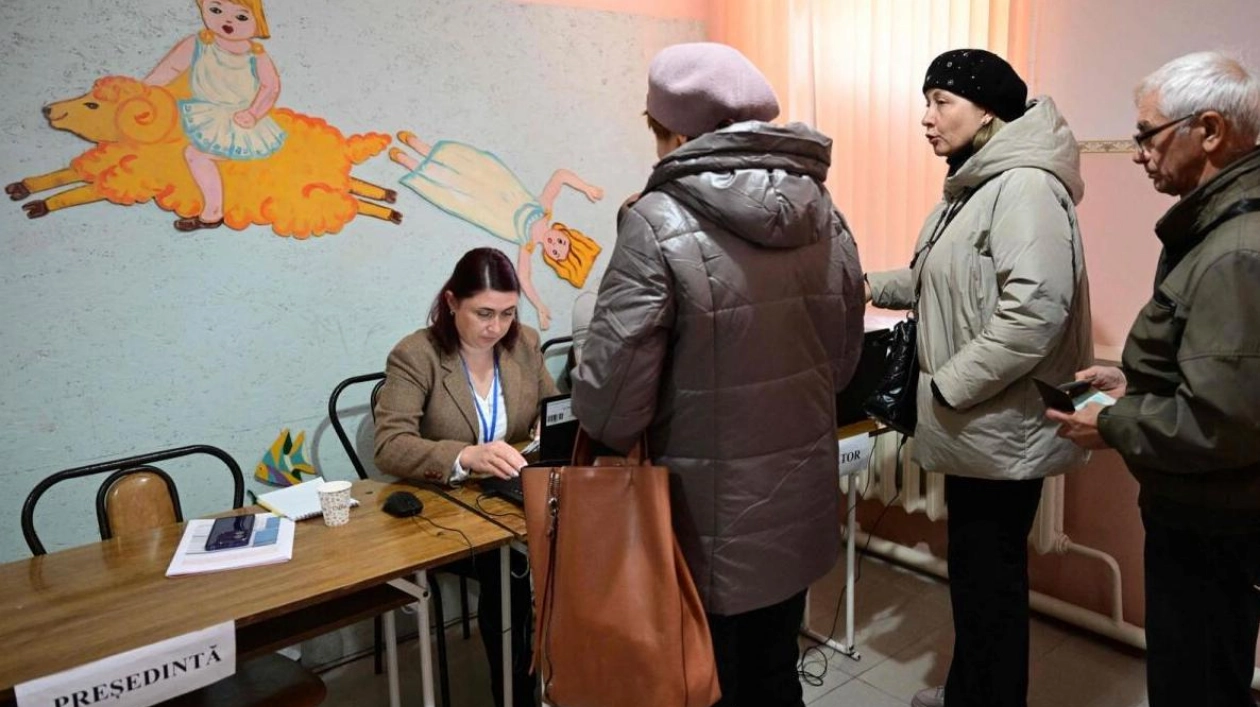People registered for voting in the presidential election and referendum on joining the European Union at a specially designated polling station for those living in the Transnistria region, in Varnita on October 20, 2024. – AFP
Early results from Sunday's referendum on Moldova's EU aspirations showed that half of Moldovans voted 'yes', positioning the small nation, caught between East and West, on a trajectory towards joining the single market despite Russian pressure. By 0300 GMT on Monday, with 97.66% of the vote counted, 50% of Moldovans had voted 'yes', according to the Moldovan Central Election Commission's website. The final outcome remained uncertain, as earlier partial results indicated 57% were hesitant about joining the EU. Analysts suggested that ballots from the predominantly pro-EU diaspora were counted later, providing a last-minute boost to the 'yes' campaign.
While not a significant victory, the results favor incumbent pro-EU President Maia Sandu, who was seeking re-election on Sunday. By early Monday, she had secured 41.91% of the vote with 97.7% counted. The referendum and presidential vote serve as a litmus test for the deeply divided nation's inclination to maintain close ties with Russia or embark on the potentially lengthy process of EU accession. Sandu's main rival, former Prosecutor General Alexandr Stoianoglo, garnered 26.32% of the vote, setting the stage for a November 3 run-off in the economically struggling ex-Soviet southeast European nation. A run-off is triggered if no candidate achieves the 50% threshold.
In a late Sunday statement to Moldovans, Sandu claimed there was 'clear evidence' that criminal groups, in collaboration with foreign entities hostile to Moldova's interests, attempted to buy 300,000 votes, labeling it 'fraud of unprecedented scale.' 'Their goal was to undermine the democratic process. Their aim was to spread fear and panic in society... We await the final results and will respond with resolute decisions,' she said.
The lead-up to the vote was marred by allegations of election tampering by fugitive tycoon Ilan Shor, who resides in Russia. Moscow denies involvement, and Shor denies any wrongdoing. Earlier this month, Moldovan police accused Shor, who is jailed in absentia for fraud and theft, of attempting to bribe a network of at least 130,000 voters to vote 'no' and support 'our candidate' in the elections. Shor openly offered on social media to pay Moldovans to influence voting, claiming it was a legitimate use of his money. In the early hours of Monday, he declared that Moldovans had voted against the referendum, congratulating them on 'losing the battle' and addressing Sandu simply as Maia.
Prior to the vote, Moldovan authorities took down online platforms they deemed to be spreading disinformation, revealed they had uncovered a Russian program training Moldovans to incite mass unrest, and initiated criminal cases against Shor's allies.
Source link: https://www.khaleejtimes.com






